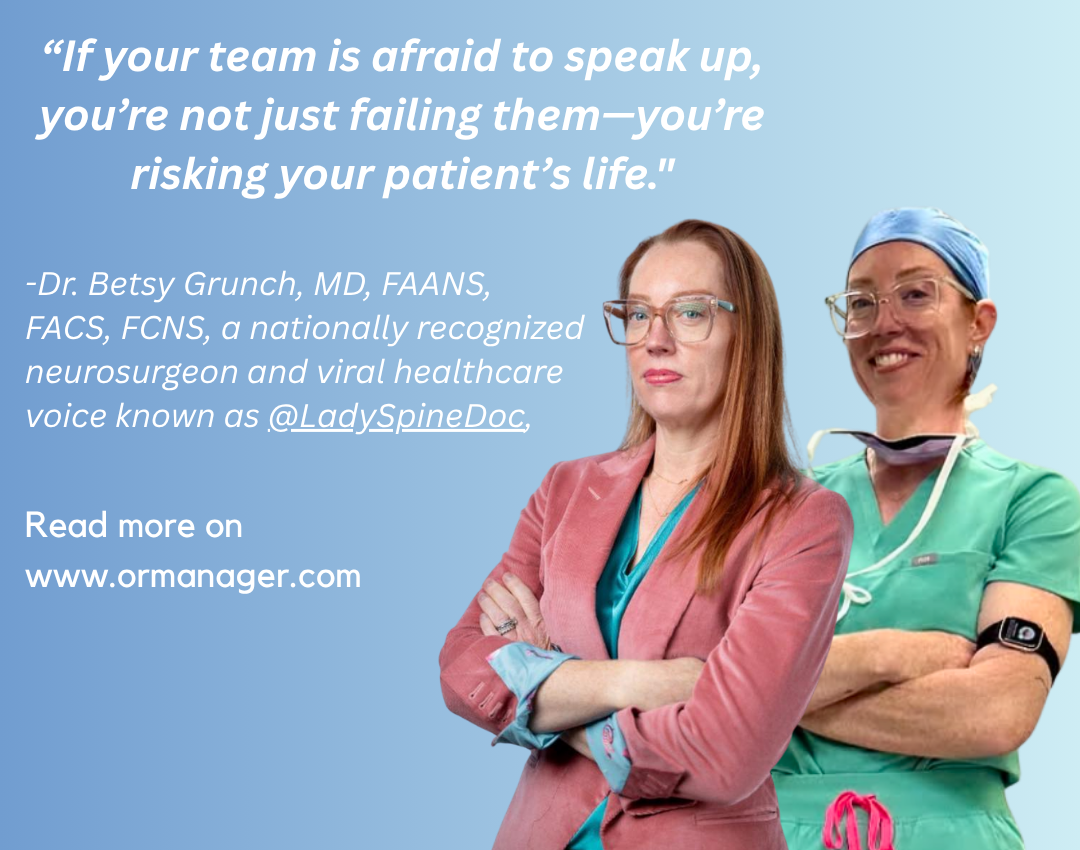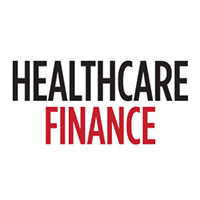
When Betsy Grunch, MD, FAANS, FACS, FCNS, board-certified neurosurgeon known on TikTok and Instagram as @Ladyspinedoc, watched a viral video of a surgeon berating an OR nurse during a livestreamed procedure, she was incredibly bothered by the shameful display. She took to her popular platform and spoke out against that…

Editor's Note With healthcare leaders stretched thin by staffing shortages, financial pressures, and the constant need to adapt, the 2025 OR Manager Conference agenda couldn't be more timely—or more practical. We asked our Program Committee members to share the sessions they're prioritizing this year. Their picks promise real solutions and…

Editor's Note A new Deloitte report shows healthcare finance leaders are increasingly focused on external business pressures, especially federal policy changes, tariffs, and economic volatility, Chief Healthcare Executive reported June 24. In contrast to prior surveys, where workforce and internal operations were top concerns, 84% of leaders now cite external…

Editor's Note Nearly two-thirds of healthcare organizations expect increased revenue from value-based care (VBC) arrangements in 2024, signaling growing confidence in the model despite concerns over financial risk and infrastructure gaps, according to a May 19 report in Healthcare Finance. The findings are based on a nationwide survey of 168…

Editor's Note The Centers for Medicare & Medicaid Services (CMS) has updated hospital price transparency guidelines to require publishing real, calculated dollar amounts rather than placeholders and estimates. As detailed in the agency’s May 22 announcement, the revision complies with President Trump’s February 25 Executive Order 14221, “Making America Healthy…

The kind of Navy-taught leadership Brian Dawson, MSN, RN-BC, CNOR, CSSM, taps into is straightforward. “If you’re going to lead 3,500 people to move to the left when you need them to, you better know how to get them to see your goals as their goals,” he says during a…

Editor's Note The US Food and Drug Administration (FDA) and US Department of Health and Human Services (HHS) have launched a public Request for Information (RFI) to identify and eliminate outdated healthcare regulations, according to a May 13 press release from the FDA. The move supports a broader federal deregulatory…
Editor's Note Nonprofit hospitals, which are legally required to provide free or discounted care to qualifying patients, attempt to collect hundreds of millions of dollars from low-income patients annually while receiving significant tax breaks meant to ensure affordable care, according to a May 12 article from CBS News. As…

Editor's Note Terry A. Bohlke, MSHA, CPA, CMA, CASC, emphasized that Rocky Mountain High Surgery Center is a pseudonym “to protect the innocent,” but the numbers he presented at the 2025 Ambulatory Surgery Center Association (ASCA) Conference & Expo in Denver last week were real enough. Based on actual scenarios…

Editor's Note Tariffs on medical equipment and supplies continue to climb—a situation that calls for action on the part of healthcare organizations, according to an April 23 article from nonprofit safety organization ECRI. The article highlights ten proactive steps organizations can take to protect both care quality and the bottom…